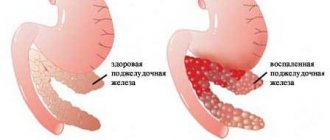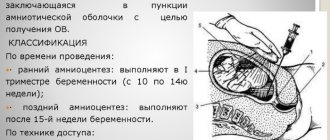Checklist for those who have stomach pain during pregnancy
Signs that everything is fine Stomach pain in pregnancy: the pain is not too severe, it goes away when you rest or change position or after visiting the toilet. Therefore, the algorithm will be like this:
- Take a comfortable position.
- Take a rest and try to relax. Give yourself half an hour during which you will be busy finding a comfortable position.
- Think about what could have caused the pain: remember what you ate and the last time you went to the toilet.
- Check to see if you have any suspicious vaginal discharge.
When to call an ambulance
- For any bleeding from the vagina due to abdominal pain.
- If you experience regular contractions or attacks of pain.
- If the pain intensifies and does not go away after 30–60 minutes, and you have rested.
When to go to the doctor
- For any unusual vaginal discharge.
- If you feel pain when urinating.
- If you feel pain in the lower back.
Taking care of your tummy? Moms, don't be afraid, the baby is protected
Quite often, mothers ask obstetricians how dangerous it is to sleep on their stomach, hit their stomach, or get elbowed by fellow citizens on public transport. Will this harm the baby? Doctors are trying to reassure: the baby is under reliable protection. This does not mean that you don’t need to protect your tummy at all, but you shouldn’t panic too much and fear that the slightest impact could harm the baby. The baby is in amniotic fluid, which reliably absorbs all shocks. So, most of the anxiety is a psychological factor. Any mother instinctively covers her tummy, as if protecting the baby.
Have a good sleep
Quite often, expectant mothers worry about what position to sleep in so as not to harm the baby. Don't worry and trust your feelings. At the very beginning of pregnancy, the uterus does not increase much in size, your baby is still a baby, so sleeping on the stomach does not interfere or harm either the mother or the baby. As the uterus grows in size, you yourself will feel that lying on your stomach becomes uncomfortable and will begin to avoid this position. Some people sleep on their backs for several months, while others immediately roll over onto their sides. The “supine” position also quickly becomes uncomfortable, since in the later stages the inferior vena cava will be compressed and you will feel discomfort.
In the third trimester of pregnancy, as a rule, the mother herself intuitively comes to the conclusion that even sleeping on her side is simply uncomfortable. Many people begin to place a cushion of blanket under their tummy - and this is completely normal. Some people find it convenient to place a cushion between their legs - listen to yourself and sleep in a comfortable position. All the same, in a dream a person changes position involuntarily, so it is very naive to think about the “correctness” of a sleeping position. Remember also that the mattress should not be hard, otherwise it will cause you pain. The ideal option is anatomical mattresses that take the shape of the body, but they are quite expensive. Give up hard orthopedic beds for a while, even if they previously helped you rest. Sleep on something softer.
Accident
Many mothers are afraid of bumps and falls, which happen quite often, because the tummy protrudes in the later stages. There are myths among people that a fall can cause an abortion or placental abruption; we are informed about this by popular television series in which heroines lose a child from one accidental fainting. In fact, everything is completely different. Placental abruption occurs during gestosis; termination of pregnancy can occur from mechanical trauma only if the mother was threatened with severe abortion, which usually requires hospitalization. In general, even in severe car accidents, pregnancy can often be saved.
Clothes for the belly
There are no less myths about how important it is to dress correctly. Many mothers, undressing and seeing a trace of elastic from their panties on their stomachs, are already afraid that they have harmed the baby. Yes, indeed, in this position it is better to dress in loose clothes. Swelling may occur during the day, and you simply feel healthier and more comfortable without extra elastic bands. However, it is hardly possible to harm the baby with a belt in the place where the waist used to be.
Some mothers are also interested in whether the bandage, which is often recommended to be worn after 23-24 weeks, is harmful to the baby. Of course no. It is designed to redistribute the load on the spine and avoid discomfort and pain, as well as support the anterior abdominal wall to reduce pressure on the lower segment of the uterus. The bandage is especially relevant for women with weakened abdominal muscles and for those who are giving birth for the first time and have a stretched abdominal wall. However, if they feel well, sports mothers can do just fine without a bandage.
Anna Babina, Consultant: Tatyana Uletova, obstetrician-gynecologist
Why does your stomach hurt during pregnancy?
Firstly, your stomach can hurt for the most trivial reasons that have nothing to do with pregnancy: you ate something wrong, or ate too much, or caught a mild infection, or you just have dyspepsia (indigestion). Maybe you have untreated gynecological diseases - these are all those diseases that appeared before pregnancy and independently of it.
Secondly, during pregnancy the risk of constipation increases, which can also cause stomach pain. So you need to carefully monitor your diet and eat more fiber (that is, fresh fruits and vegetables) to ensure regular bowel movements. If the diet does not help, you need to use laxatives, which are allowed for pregnant women. For example, lactulose syrup or regular glycerin suppositories.
Thirdly, there are specific causes of pain that are associated specifically with the new position. And they can be divided into two large groups: non-dangerous and dangerous.
When abdominal pain is not dangerous
Pregnancy rearranges many processes in a woman’s body. The changes are concentrated in the abdominal area and sometimes cause pain.
Growing pains
As the fetus grows in size, the uterus stretches. Abdominal Pain During Pregnancy: Is It Gas Pain or Something Else? , which in itself can be unpleasant. But along with the uterus, the ligaments that support it also stretch. Some people are lucky enough not to feel anything like this for the entire nine months, while others have to constantly look for a comfortable position in the second half of pregnancy, when the fetus becomes large.
Moving organs
The uterus grows, occupies the abdominal cavity, and the rest of the organs have to move Baby Belly Aches: 13 Causes of Abdominal Pain in Pregnancy. This movement can also cause pain and discomfort in different parts of the abdomen.
Training contractions
They appear closer to childbirth, in the third trimester. With them, the cervix does not open, and pregnancy is not in danger Abdominal Pain During Pregnancy. They are distinguished from real contractions by strength (training ones are quite soft) and regularity. Real contractions intensify and become more frequent, but training contractions come and go as they please.
Prerequisites for injury: hormones, blood pressure
Falls that threaten the expectant mother's abdomen are usually predisposed to changes that occur in her body during gestation. From the beginning of pregnancy, gestational hormones are actively synthesized and in increased concentrations, due to which the blood flow is redistributed and the vascular walls are relaxed. Under normal conditions, tissues and organs receive a complete and sufficient blood supply, but during pregnancy, the blood is redistributed in such a way that the pelvic organs with the growing uterus and fetus receive maximum nutrition. This leads to hypotension (low blood pressure). Therefore, in stuffy rooms, in hot weather or changes in weather conditions, women may feel unwell and faint. Often this condition is preceded by lightheadedness, and a woman, feeling weakness in her legs, tries to protect herself by sitting on a bench or leaning against a wall or corner of the house. But if there is nothing around, falls with bruises are possible, including in the abdominal area.
Important
If before pregnancy your blood pressure was low and you fainted from stuffiness or weather changes, you need to be doubly careful during gestation; a sudden attack of low blood pressure (hypotonic crisis) can take you by surprise.
When is abdominal pain most dangerous during pregnancy?
Dangerous cases are those that threaten the fetus or the pregnant woman. But, as a rule, they both threaten.
Ectopic pregnancy
When the test shows two lines, an ultrasound has not yet been performed, and the stomach suddenly and unbearably hurts, you need to go to the hospital as quickly as possible. Sharp pain at the beginning of pregnancy may be an indicator of an ectopic pregnancy. Abdominal Pain During Pregnancy.
Normally, the egg is fertilized while it is in the fallopian tube. Already in fertilized form, it “swims” to the uterus and there attaches itself to its wall. Sometimes this process goes wrong and the fertilized cell attaches directly to the wall of the fallopian tube. But the tube cannot replace the uterus: it simply does not know how to stretch like that.
And when the embryo becomes too large for the tube, it ruptures, causing internal bleeding. This is a dangerous condition that requires immediate surgery. In this case, it is very difficult to keep the fallopian tube intact; it may have to be removed.
Therefore, do not refuse ultrasound in the early stages.
The procedure helps to determine whether the fertilized egg is located correctly, and, if an ectopic pregnancy is detected, to perform the operation less traumaticly, preserving the functions of the fallopian tube.
Miscarriage
A miscarriage is the spontaneous termination of pregnancy. It can have a lot of reasons, ranging from fetal non-viability to unexplained cases. One way or another, only a doctor can prescribe treatment, so if the main symptoms of a miscarriage are pain and bleeding, you must urgently call an ambulance.
A miscarriage can happen in any trimester. Only after the 24th week is it called premature birth. And the closer to childbirth, especially after the 34th week, the higher the chances that everything will end successfully Premature labor and birth for both mother and fetus.
Why do miscarriages happen →
Placental abruption
The placenta is a temporary organ that connects the fetus to the uterus. It is through the placenta that the fetus receives everything it needs for growth. Normally, the placenta fits tightly to the uterus and is separated only after birth. But sometimes partial or complete placental abruption occurs earlier.
This condition causes severe pain and can be dangerous for both the fetus and the mother. Baby Belly Aches: 13 Causes of Abdominal Pain in Pregnancy. There is only one salvation - call an ambulance if the abdominal pain does not go away after resting and changing position. Bleeding during detachment is internal and easy to miss. Therefore, do not hesitate to seek medical help during pregnancy.
Appendicitis
In pregnant women, it is rare, but the appendix becomes inflamed - in about one in a thousand cases. Appendicitis in pregnancy: how to manage and whether to deliver. Perhaps the movement of internal organs is to blame.
The danger is that an inflamed appendix is difficult to diagnose. For example, if the uterus “pushes” the process of the cecum back. Appendicitis noticed in time, as a rule, does not pose a threat to pregnancy. Surgery and general anesthesia, of course, are not particularly beneficial for the fetus, but they do not mean that there will be anything wrong with its further development.
How to recognize and treat appendicitis →
Can pregnant women suck in their stomach?
Abdominal retraction and breathing exercises are considered one of the constituent elements of yoga, fitness, and gymnastics. This technique is a positive habit in everyday life - after all, an even, flat tummy is much more beautiful than a hanging fold. In addition, by tightening your stomach, you make your back and posture straighter. Is it possible to suck in your stomach during pregnancy? How appropriate and correct are these actions, and will such practice harm the intrauterine life and development of the baby? Initially, it should be explained that while inside the mother’s tummy, the baby is reliably protected by the elastic membranes of the uterus and the abdominal press. Amniotic fluid additionally protects the baby from the effects of external factors (blows, shocks, pressure), serving as a kind of shock-absorbing agent. Therefore, if you unconsciously or during physical exercises pull in your pregnant belly, you will not be able to harm the baby. An exception to the rules are women who are at risk of bearing a child, for whom, due to important circumstances, physical activity is prohibited, and bed rest and rest are recommended. Do not confuse pulling in the abdomen with tightening it with a belt, belt, or squeezing it with tight clothing. Such actions inhibit blood circulation in the pelvis, minimize the supply of oxygen and lead to oxygen starvation of the baby - hypoxia. You need to remember that the child inside you likes comfort and a cozy atmosphere. I note that special orthopedic bandages for pregnant women are not among the prohibited items that compress the abdomen. On the contrary, these are effective products that perform a medical function to facilitate pregnancy. They are often prescribed to women to minimize the load on the spine and internal organs, to support a heavy abdomen, and to prevent early labor. Retracting the abdomen during pregnancy perfectly prepares the body, in particular the abdominal muscles and pelvic floor, for a quick and easy birth. Today there are many workouts - yoga, gymnastics for pregnant women, which involve special exercises aimed at making pregnancy easier and keeping mothers in shape. Physical exercise, breathing exercises, and abdominal tightening are positive aspects during pregnancy. It is these loads that contribute to the rapid process of childbirth without any complications for the mother and injuries to the newborn. It should be noted that it is the use of yoga with abdominal retraction and proper breathing that “calms” the muscles of the uterus during tone, Braxton-Hicks training contractions, and is an effective prevention for improving the well-being of a pregnant woman.










